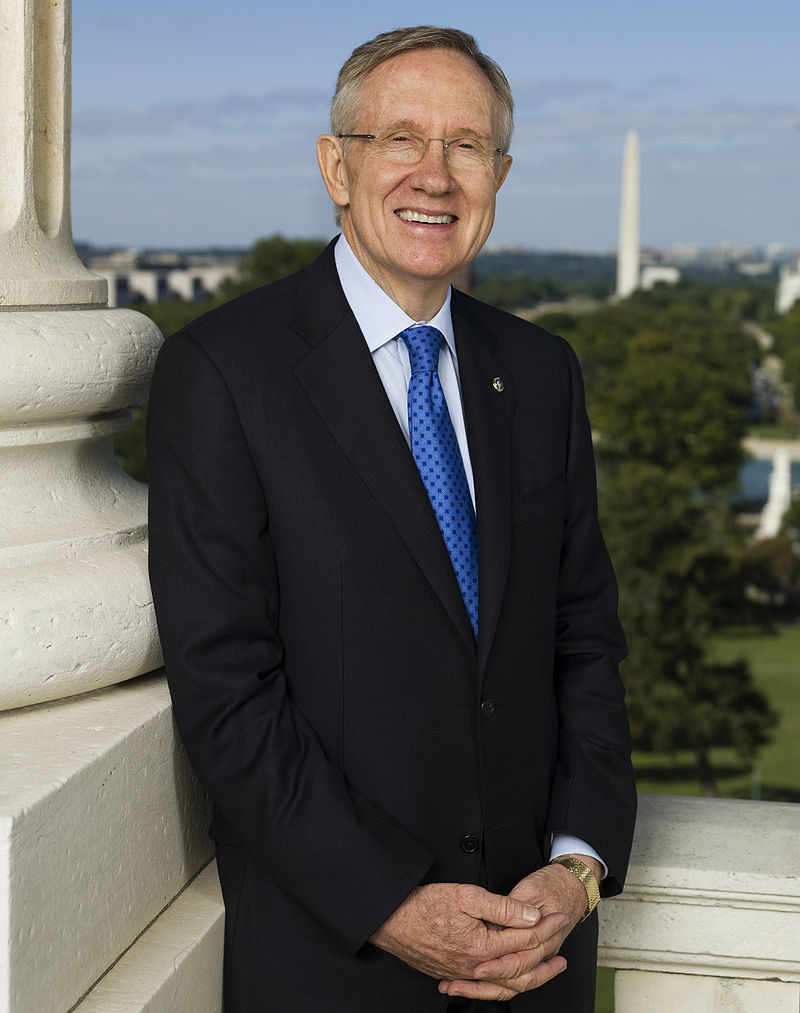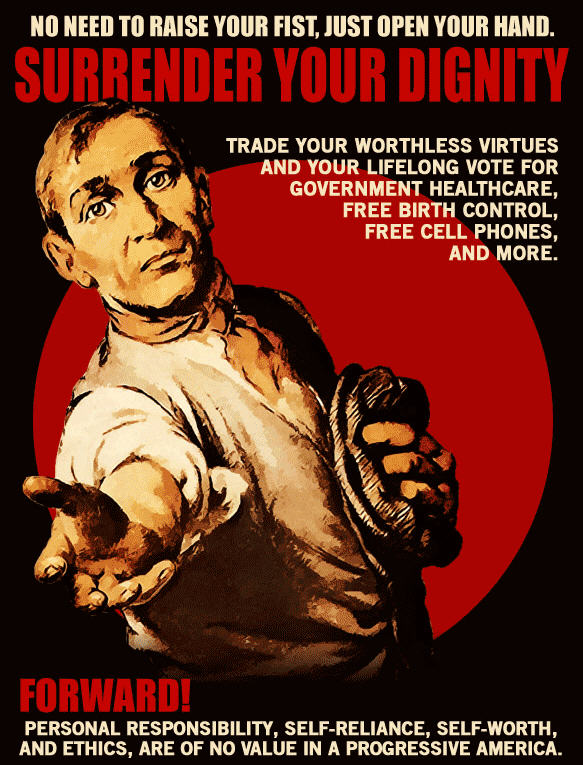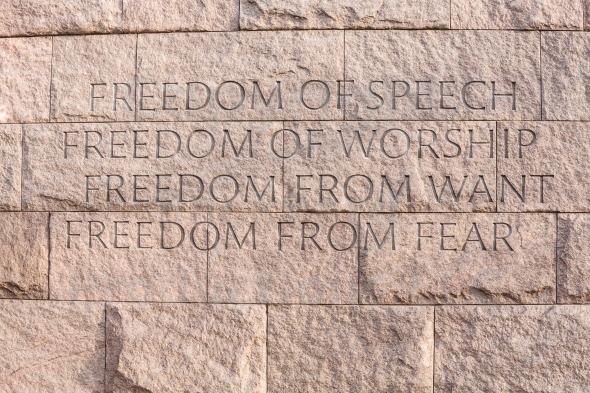Congress shall make no law respecting an establishment of religion, or prohibiting the free exercise thereof; or abridging the freedom of speech, or of the press; or the right of the people peaceably to assemble, and to petition the government for a redress of grievances.
I don’t suspect that there could be a more plain directive than that.
Who is the person who wishes to amend such a simple and beautiful foundational precept?
Demorat Senate Majority Leader, Harry Reid.
In my opinion, the Wall Street Journal nails the problem and the issue:
Harry Reid Rewrites the First Amendment
When politicians seek to restrict speech, they are invariably trying to protect their own incumbency.
by Theodore B. Olson
Liberals often deplore efforts to amend the Constitution, particularly the Bill of Rights and especially when the outcome would narrow individual liberties. Well, now we know they don’t really mean it.
Forty-six Senate Democrats have concluded that the First Amendment is an impediment to re-election that a little tinkering can cure.
Yes. Tinkering can cure that aged and so-“yesterday’s news” tragic document.
Because, after all, the US Constitution and its concomitant Bill of Rights need to be “living documents.” Read: documents that need to be changed when it is convenient to the purpose and agenda of Leftists.
They are proposing a constitutional amendment that would give Congress and state legislatures the authority to regulate the degree to which citizens can devote their resources to advocating the election or defeat of candidates. Voters, whatever their political views, should rise up against politicians who want to dilute the Bill of Rights to perpetuate their tenure in office.
And oh yes, oh they should. And that rising up should include black powder and brass and torches and pitchforks.
Led by Majority Leader Harry Reid, these Senate Democrats claim that they are merely interested in good government to “restore democracy to the American people” by reducing the amount of money in politics. Do not believe it. When politicians seek to restrict political speech, it is invariably to protect their own incumbency and avoid having to defend their policies in the marketplace of ideas.
And let us examine, fundamentally, the foundational precepts of the Constitution and what it protects and what it doesn’t.
This scheme is doomed to fail when it comes to a vote in the Senate, perhaps as soon as Monday. The Constitution’s Framers had the wisdom to make amending the Constitution difficult, and Mr. Reid’s gambit won’t survive a filibuster. But Senate Democrats know their proposal is a loser. They merely want another excuse to rail against “money in politics” and Supreme Court justices they don’t like.
But there’s a point here. What’s the point?
The rhetoric of these would-be constitutional reformers is focused on two Supreme Court decisions: Citizens United v. FEC (2010) and McCutcheon v. FEC (2014). In Citizens United, the court struck down a law prohibiting unions and corporations from using their resources to speak for or against a candidate within a certain time period before an election.
In other words, money can find itself supporting what it will, and — with teeth-gritting enamel flecks populating the various keyboards of Leftists — corporations are still considered as “people.”
The Obama administration conceded during oral argument that the law would permit the government to ban the publication of political books or pamphlets. Pamphlets and books ignited the revolution that created this country and the Bill of Rights. In pushing to overturn the court’s decision, Mr. Reid and his Democratic colleagues apparently wish they had the power to stop books, pamphlets—as well as broadcasting—that threaten their hold on their government jobs.
Ban the publication of books and pamphlets. That translates, these days, to BANNING MY BLOG and blogs of a like mind.
Under this proposal, I would have to face jail if I continued writing.
Let me quote a so-called “lion” of the Demorat Left:
“In the entire history of the Constitution,” the late Ted Kennedy once stated on the Senate floor, “we have never amended the Bill of Rights, and now is not the time to start. It would be wrong to carve an exception in the First Amendment. Campaign finance reform is a serious problem, but it does not require that we twist the meaning of the Constitution.”
One important notation: Saturday Night Live, look out.
You’d best not poke fun ever again.
And let me quite plainly make — as I wrote earlier — the argument regarding Positive vs Negative Rights.
Our current Constitution frames much of what we value in terms of what we cannot do.
The government cannot engage in unreasonable searches and seizures.
It cannot inflict cruel and unusual punishment.
By our current Constitution, it does NOT “guarantee” so-called “rights” to such things as housing, clothing, food, jobs — rights that place upon the state to obtain the resources from other citizens to pay for them.
Let me make this abundantly clear: “RIGHTS THAT PLACE UPON THE STATE TO OBTAIN THE RESOURCES FROM OTHER CITIZENS TO PAY FOR THEM.”
 Today is the last day the FCC will allow you to express your opinion on so-called “net neutrality.” You can go to the FCC website here.
Today is the last day the FCC will allow you to express your opinion on so-called “net neutrality.” You can go to the FCC website here.








